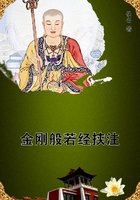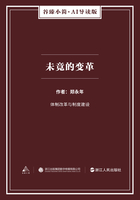The feoffor enfranchises his serf indirectly, even if he does not say so in as many words, because he has spoken of the feoffee's heirs, and the villain has no other heirs besides the lord,* The action eventually proceeds in this case, because it is brought not by a serf but by a freed man. One difficult passage in Bracton points another way; it is printed in a foot-note.* There can be no doubt, that in it Bracton is speaking of a covenant made by the lord not with a free man or a freed man, but with a villain. This comes out strongly when it is said, that the lord, and not the villain, has the assize against intruders, and when the author puts the main question -- is the feoffor bound to hold the covenant or not? The whole drift of the quotation can be understood only on the fundamental assumption that we have lord and villain before us. But there are four words which militate against this obvious explanation; the words 'sibi et heredibus suis,' We know what their meaning is -- they imply enfranchisement and a freehold estate of inheritance. They involve a hopeless contradiction to the doctrine previously stated, a doctrine which might be further supported by references to Britton, Fleta and Bracton himself.* In short, if we accept them, we can hardly get out of confusion. Were our text of Bracton much more definitely and satisfactorily settled than it is,* one would still feel tempted to strike them out; as it is we have a text studded with interpolations and errors, and it seems quite certain that 'sibi et heredibus suis' has got into it simply because the compositor of Tottell's edition repeated it from the conclusion of the sentence immediately preceding, and so mixed up two cases, which were to be distinguished by this very qualification. The four words are missing in all the MSS. of the British Museum, the Bodleian and the Cambridge University Library,* I have no doubt that further verification will only confirm my opinion. On my assumption Bracton clearly distinguishes between two possibilities. In one case the deed simply binds the lord as to a particular person, in the other it binds him in perpetuity, and in this latter case, as there ought not to be any heirs of a bondman but the lord, bondage is annihilated by the deed. It is not annihilated when one person is granted a certain privilege as to a particular piece of land, and in every other respect the grantee and all his descendants remain unfree:* -- he has no freehold, but he has a special covenant to fall back upon. This seems to lie at the root of what Bracton calls privileged villainage by covenant as distinguished from villain socage.*The reader may well ask whether there are any traces of such an institution in practice, as it is not likely that Bracton would have indulged in mere theoretical disquisitions on such an important point. Now it would be difficult to find very many instances in point; the line between covenant and enfranchisement was so easily passed, and an incautious step would have such unpleasant consequences for landlords, that they kept as clear as possible of any deeds which might indirectly destroy their claims as to the persons of their villains.* On the other hand, even privileged serfs would have a great difficulty in vindicating their rights on the basis of covenant if they remained at the same time under the sway of the lord in general. The difficulties on both sides explain why Fleta and Britton endorse only the chief point of Bracton's doctrine, namely, the implied manumission, and do not put the alternative as to a covenant when heirs are not mentioned. Still I have come across some traces in legal practice* of contracts in the shape of the one discussed. Avery interesting case occurred in Norfolk in 1227, before Martin Pateshull himself. A certain Roger of Sufford gave a piece of land to one of his villains, William Tailor, to hold freely by free services, and when Roger died, his son and heir William of Sufford confirmed the lease. When it pleased the lord afterwards to eject the tenant, this latter actually brought an assize of novel disseisin and recovered possession. Bracton's marginal note to the case runs thus: 'Note, that the son of a villain recovered by an assize of novel disseisin a piece of land which his father had held in villainage, because the lord of the villain by his charter gave it to the son [i.e. to the plaintiff], even without manumission.'* The court went in this case even further than Bracton's treatise would have warranted: the villain was considered as having the freehold, and an assize of novel disseisin was granted; but although such a treatment of the case was perhaps not altogether sound, the chief point on which the contention rested is brought out clearly enough. There was a covenant, and in consequence an action, although there was no manumission; and it is to this point that the marginal note draws special attention.*Again, we find in the beginning of Bracton's treatise a remark* which is quite out of keeping with the doctrine that the villain had no property to vindicate against his lord; it is contradicted by other passages in the same book, and deserves to be considered the more carefully on that account. Our author is enumerating the cases in which the serf has an action against his lord. He follows Azo closely, and mentions injury to life or to limb as one cause. Azo goes on to say that a plaint may be originated by intollerabilis injuria, in the sense of corporeal injury. Bracton takes the expression in a very different sense;he thinks that economic ruin is meant, and adds, 'Should the lord go so far as to take away the villain's very waynage, i.e. plough and plough-team, the villain has an action,' It is true that Bracton's text, as printed in existing editions, contains a qualification of this remark; it is said that only serfs on ancient demesne land are possessed of such a right. But the qualification is meaningless; the right of ancient demesne tenants was quite different, as we shall see by-and-by. The qualifying clause turns out to be inserted only in later MSS. of the treatise, is wanting in the better MSS., and altogether presents all the characters of a bad gloss.* When the gloss is removed, we come in sight of the fact that Bracton in the beginning of his treatise admits a distinct case of civil action on the part of a villain against his lord. The remark is in contradiction with the Roman as well as with the established English doctrine, it is not supported by legal practice in the thirteenth century, it is omitted by Bracton when he comes to speak again of the 'persona standi in judicio contra dominum.'*But there it is, and it cannot be explained otherwise than as a survival of a time when some part of the peasantry at least had not been surrendered to the lord's discretion, but was possessed of civil rights and of the power to vindicate them. The notion that the peasant ought to be specially protected in the possession of instruments of agricultural labour comes out, singularly enough, in the passage commented upon, but it is not a singular notion in itself. It occurs, as every one knows, in the clause of the Great Charter, which says that the villain who falls into the king's mercy is to be amerced 'saving his waynage.' We come across it often enough in Plea Rolls in cases against guardians accused of having wasted their ward's property.
同类推荐
热门推荐
未竟的变革(谷臻小简·AI导读版)
极端化的左派或者右派的声音,都只能给中国带来毁灭性的破坏。经济改革行进的三十多年里,我们听到了林林总总的经济学家的声音,现在,是到了该认真倾听政治学家声音的时候了!至尊废材:绝色阴阳师
亿亿万年前,天地动荡,天地间万灵为了保卫家园纷纷于投身大战中。无数灵种在此大战中被灭绝,消失在历史的长河中。稳坐龙头的古老世家,龙家却在大战过后,大厦轰然倾倒。天令被封、血脉被封,整个龙家被打入无间炼狱,暗无天日。大道五十,天衍四十九,余一道生机。天令出世,血脉重组,风起云涌,天地变色!一令出号阴阳两界!且看她如何执掌天令,掌天罚之狱。巡万界,解救天下苍生,行无数功德之举。追妻无门:女boss不好惹
青涩蜕变,如今她是能独当一面的女boss,爱了冷泽聿七年,也同样花了七年时间去忘记他。以为是陌路,他突然向他表白,扬言要娶她,她只当他是脑子抽风,他的殷勤她也全都无视。他帮她查她父母的死因,赶走身边情敌,解释当初拒绝她的告别,和故意对她冷漠都是无奈之举。突然爆出她父母的死居然和冷家有丝毫联系,还莫名跳出个公爵未婚夫,扬言要与她履行婚约。峰回路转,破镜还能重圆吗? PS:我又开新文了,每逢假期必书荒,新文《有你的世界遇到爱》,喜欢我的文的朋友可以来看看,这是重生类现言,对这个题材感兴趣的一定要收藏起来。快点掉入我的甜蜜陷阱
“补习老师,这道题怎么做?”“补习老师,这道菜怎么炒?”“补习老师,去不去看电影?”“补习老师,参加家长会不?”“补习老师……”“纪念,补习老师可帮不了你做这么多。改称呼。”纪念乖乖改口:“男神男神……”即将面临高考的高三理科女学生×兼职补习老师的大学生短篇也要甜甜甜!!!爆甜!!!















